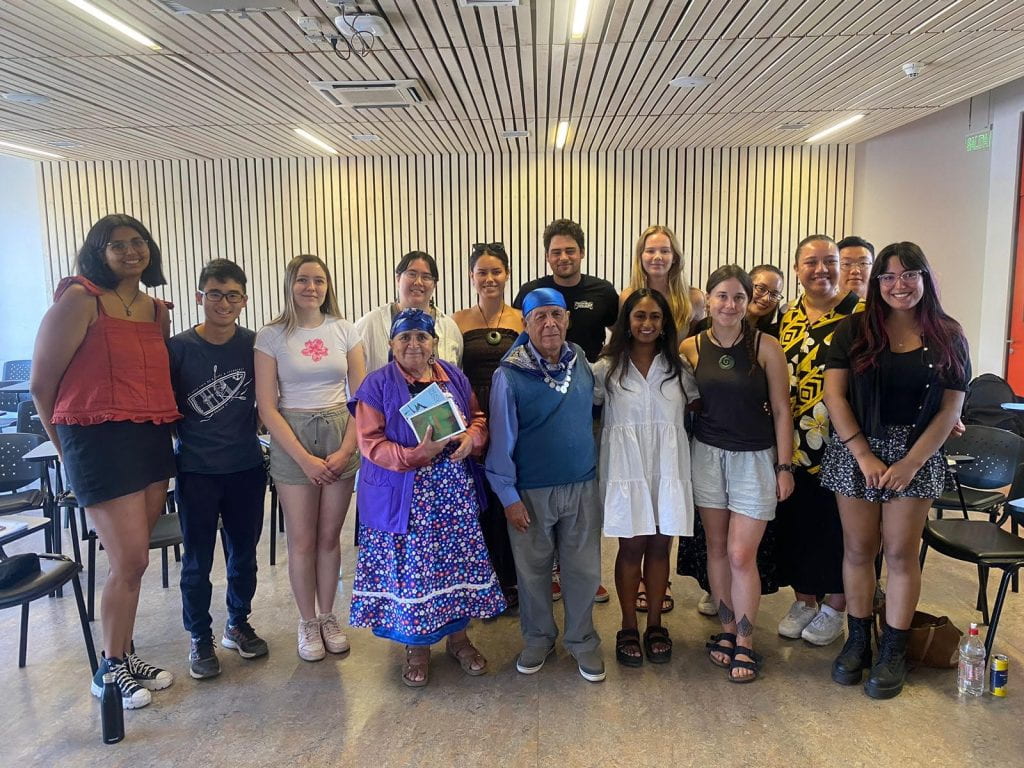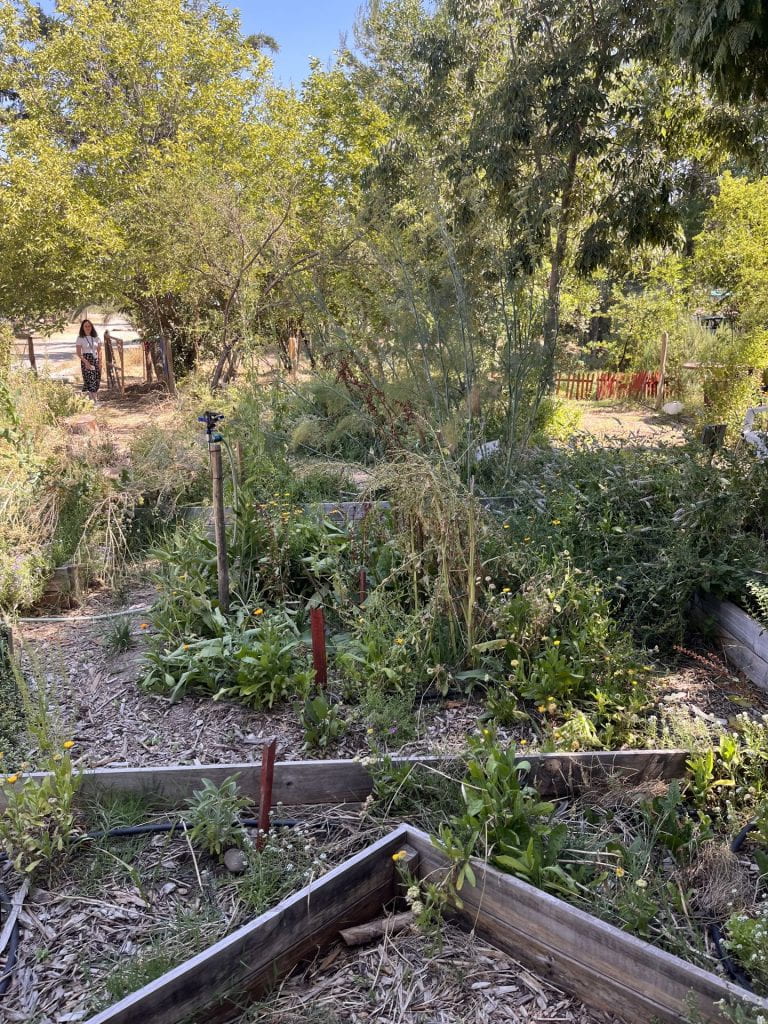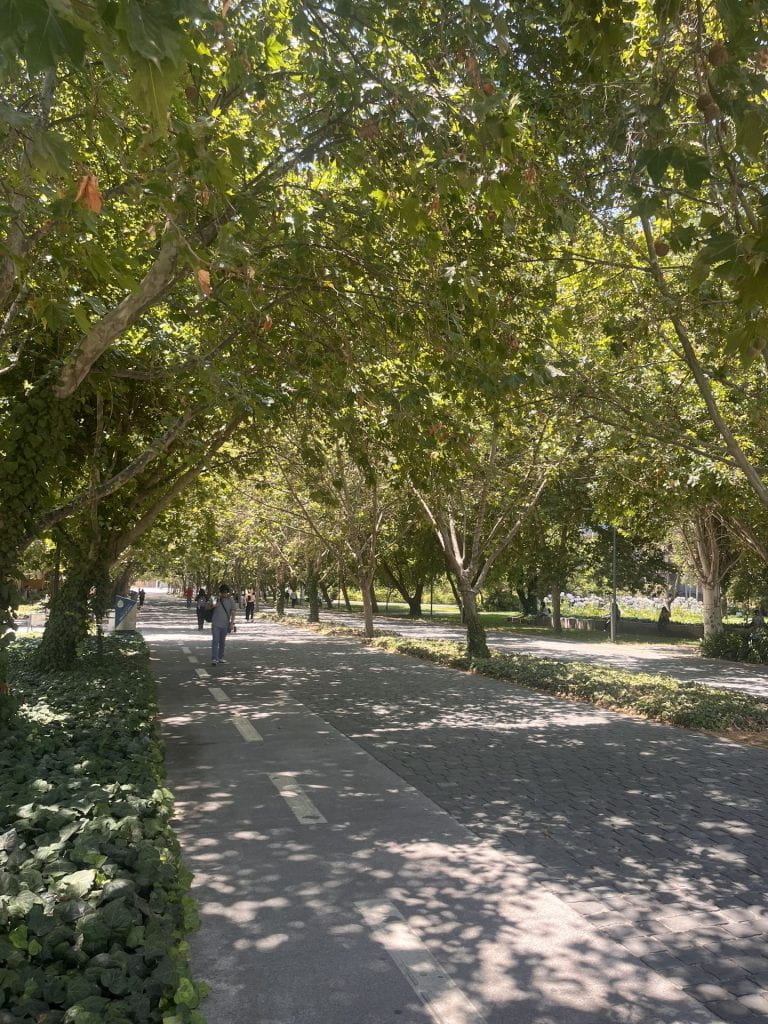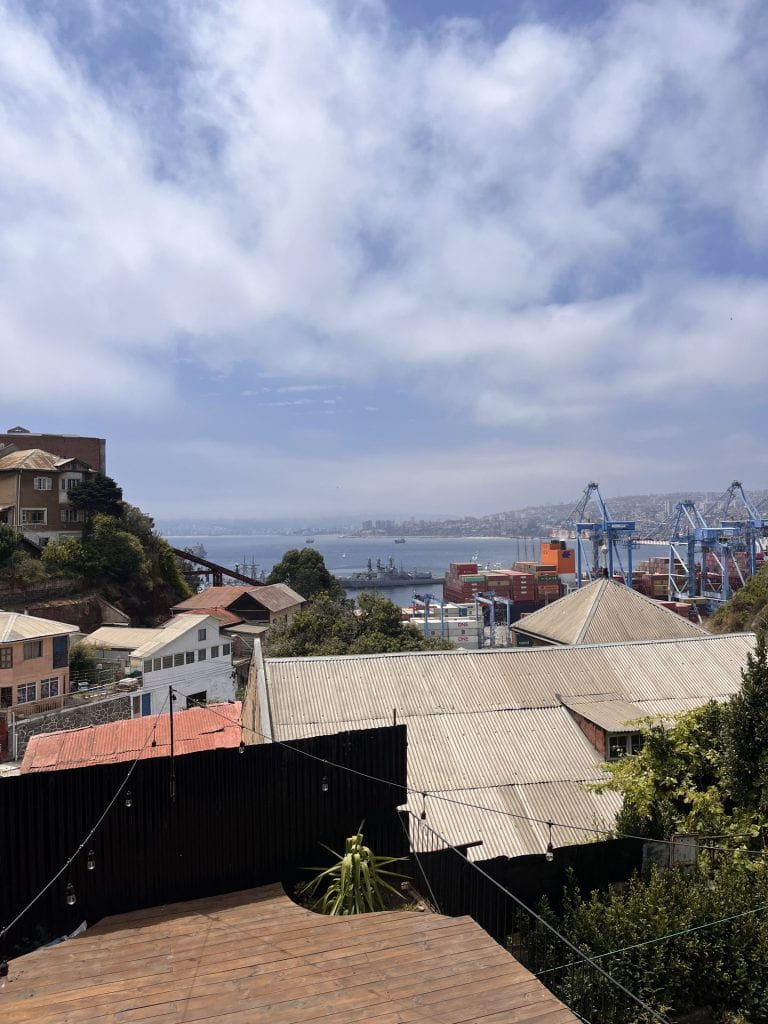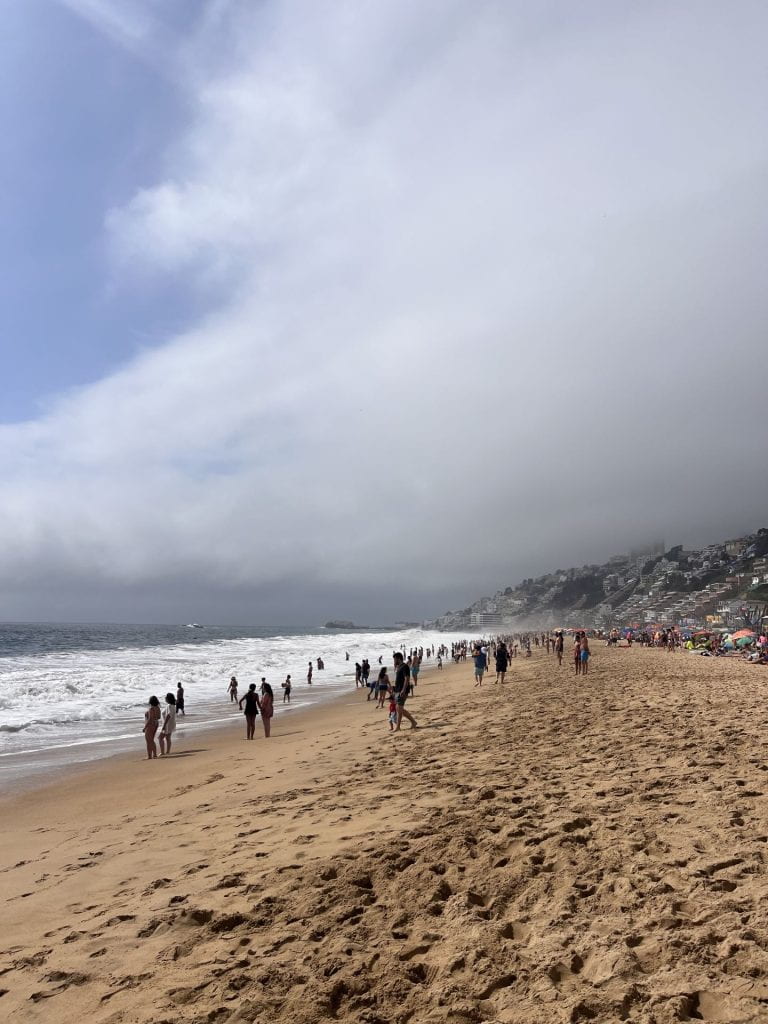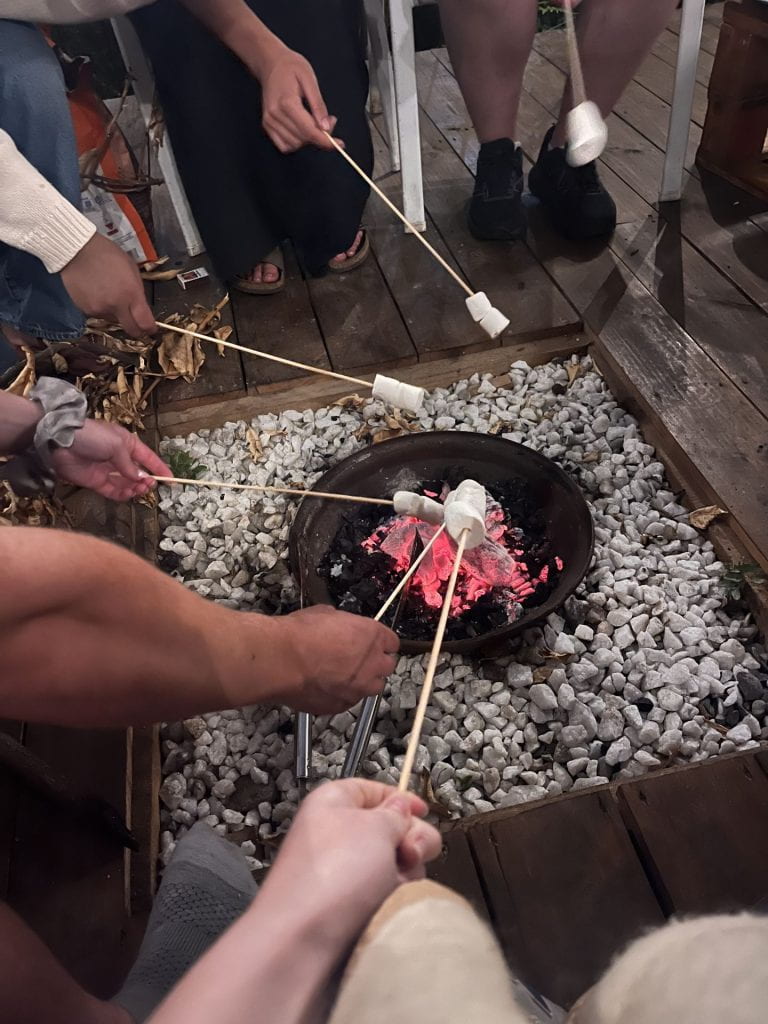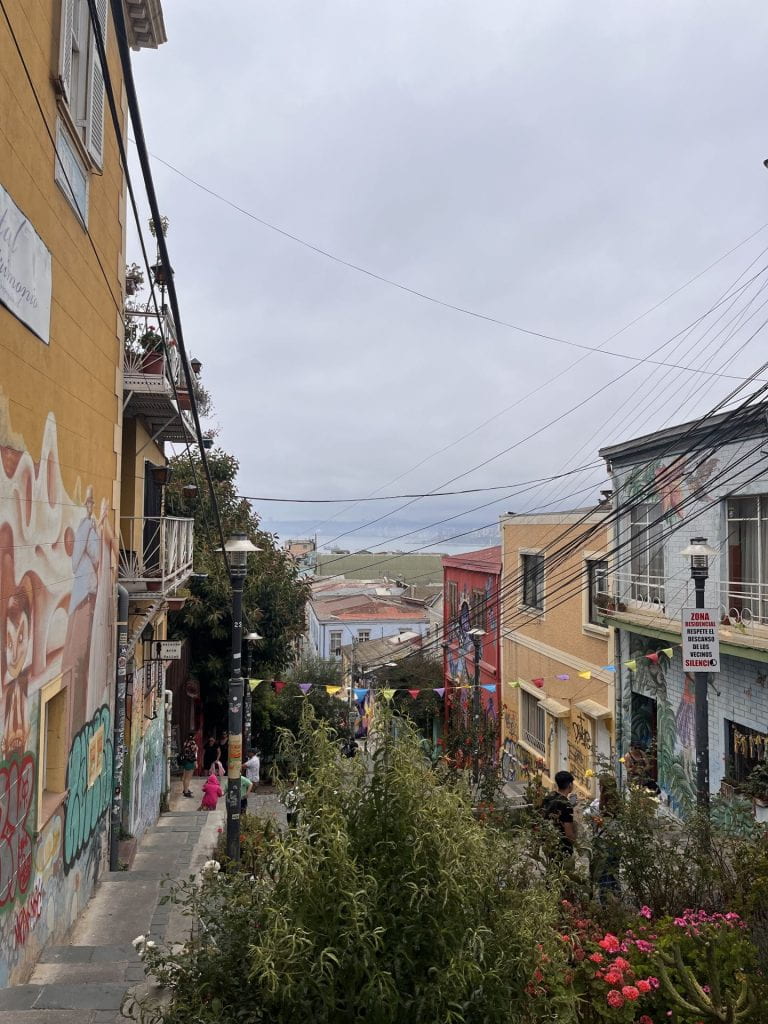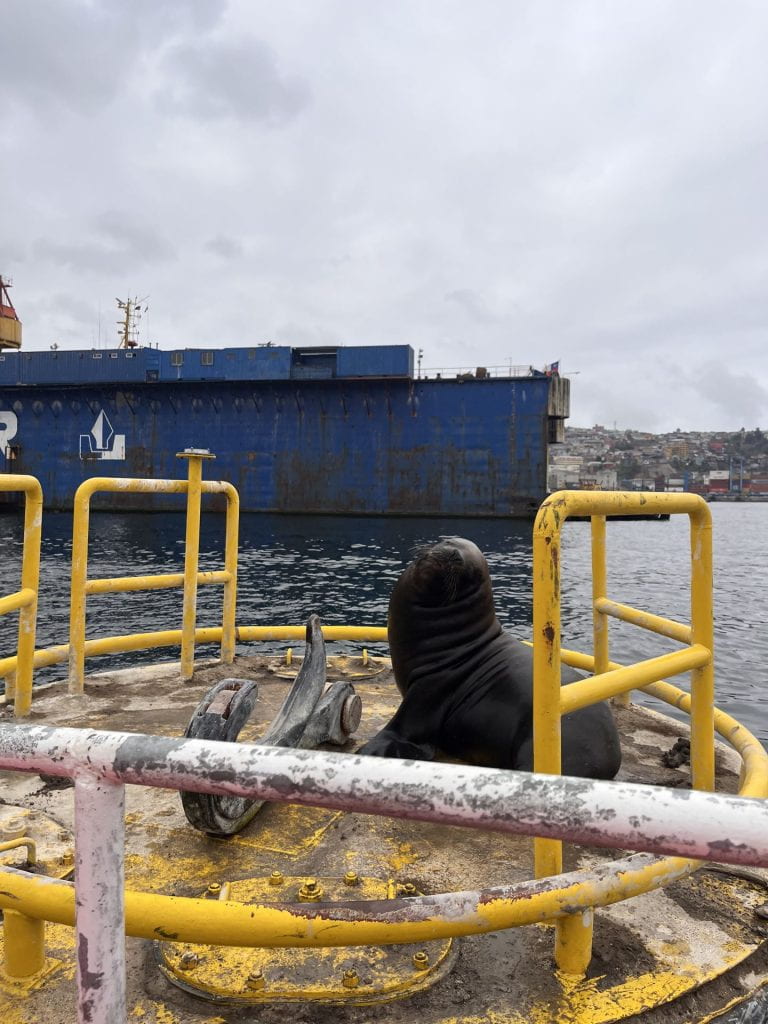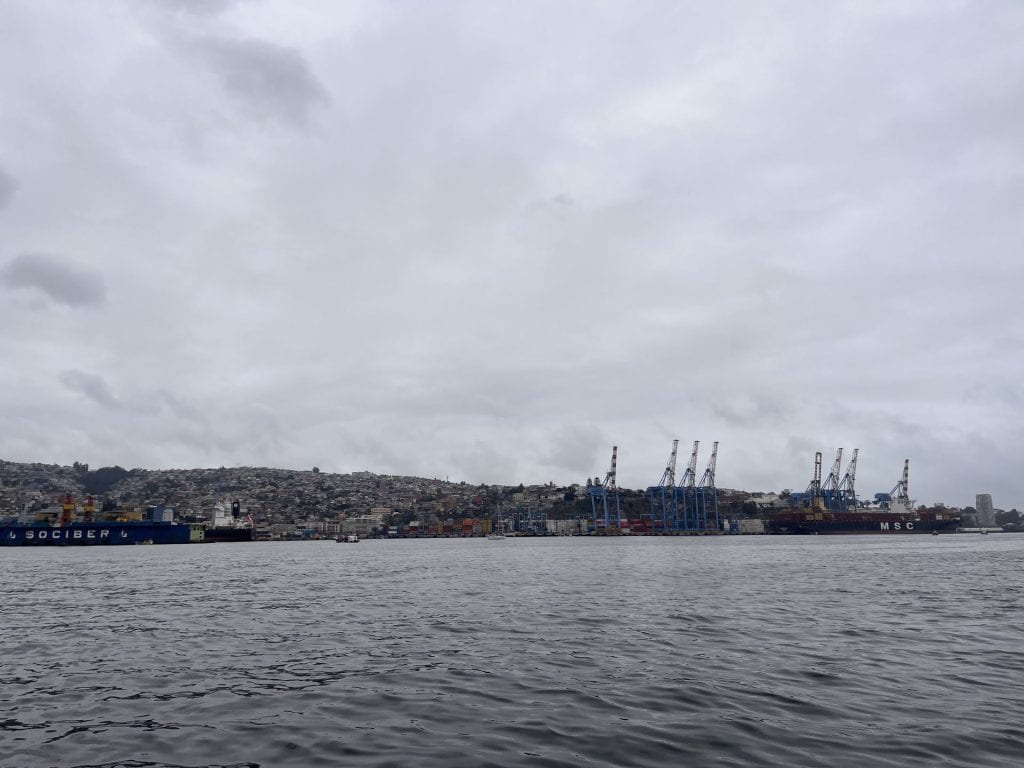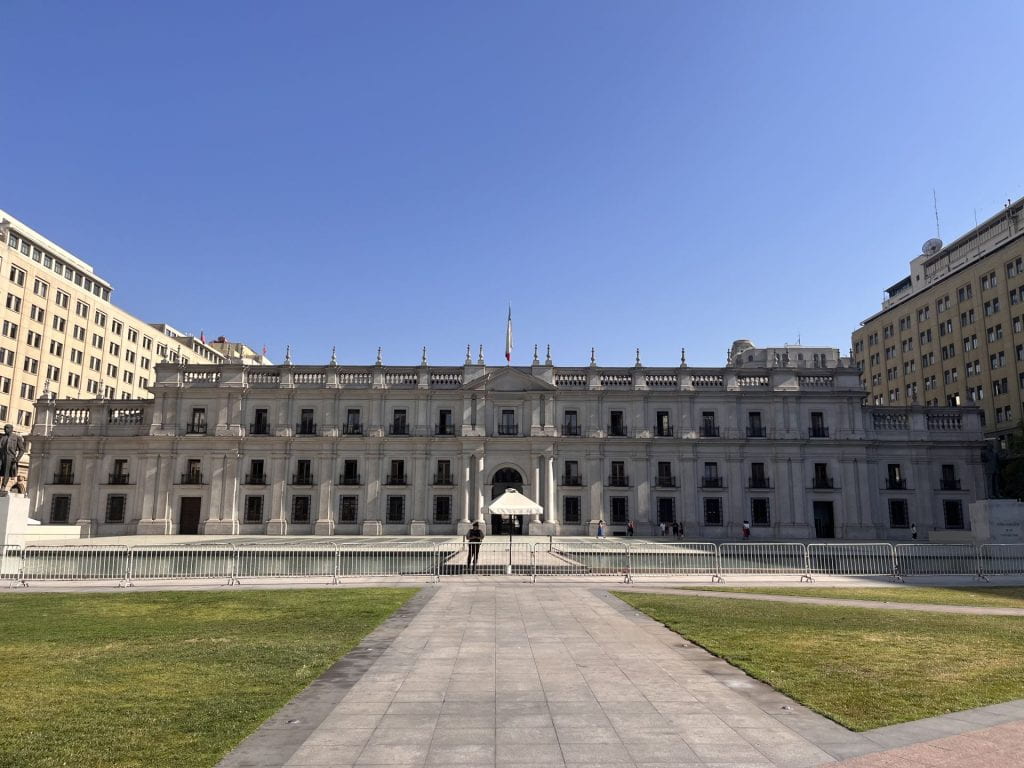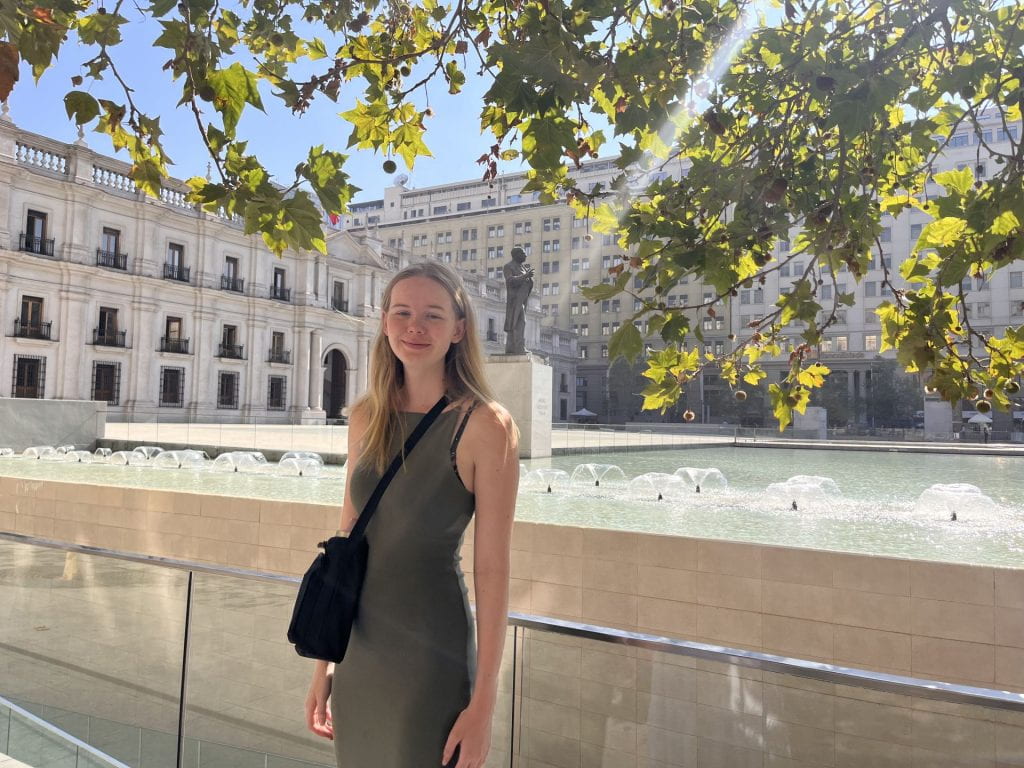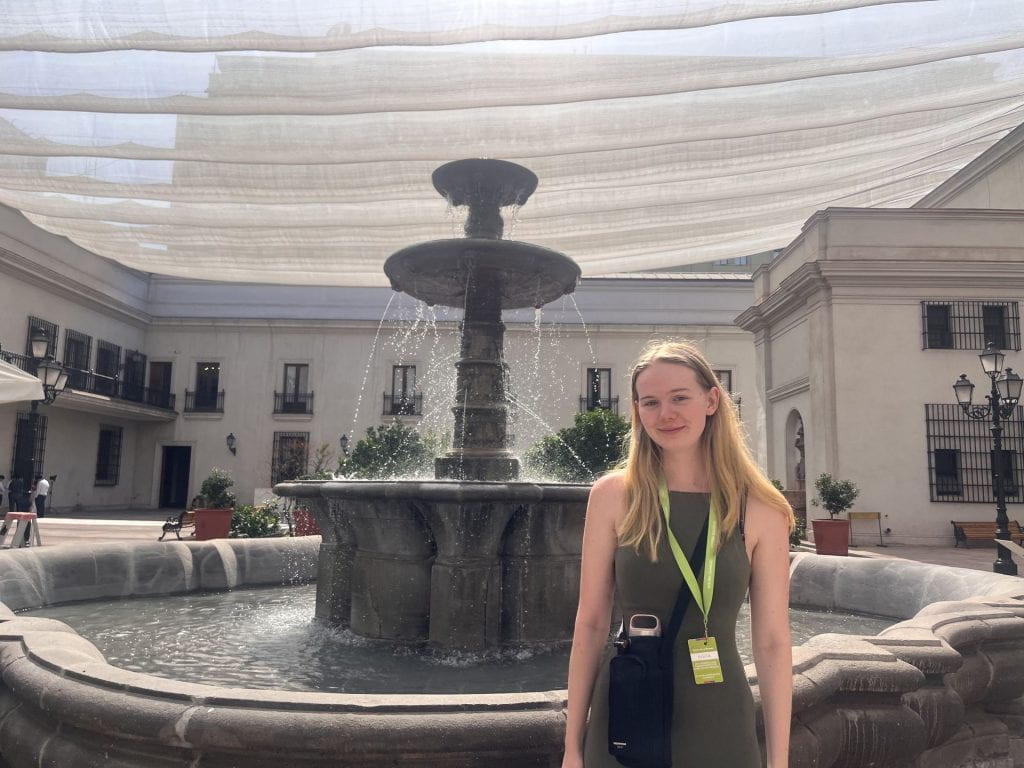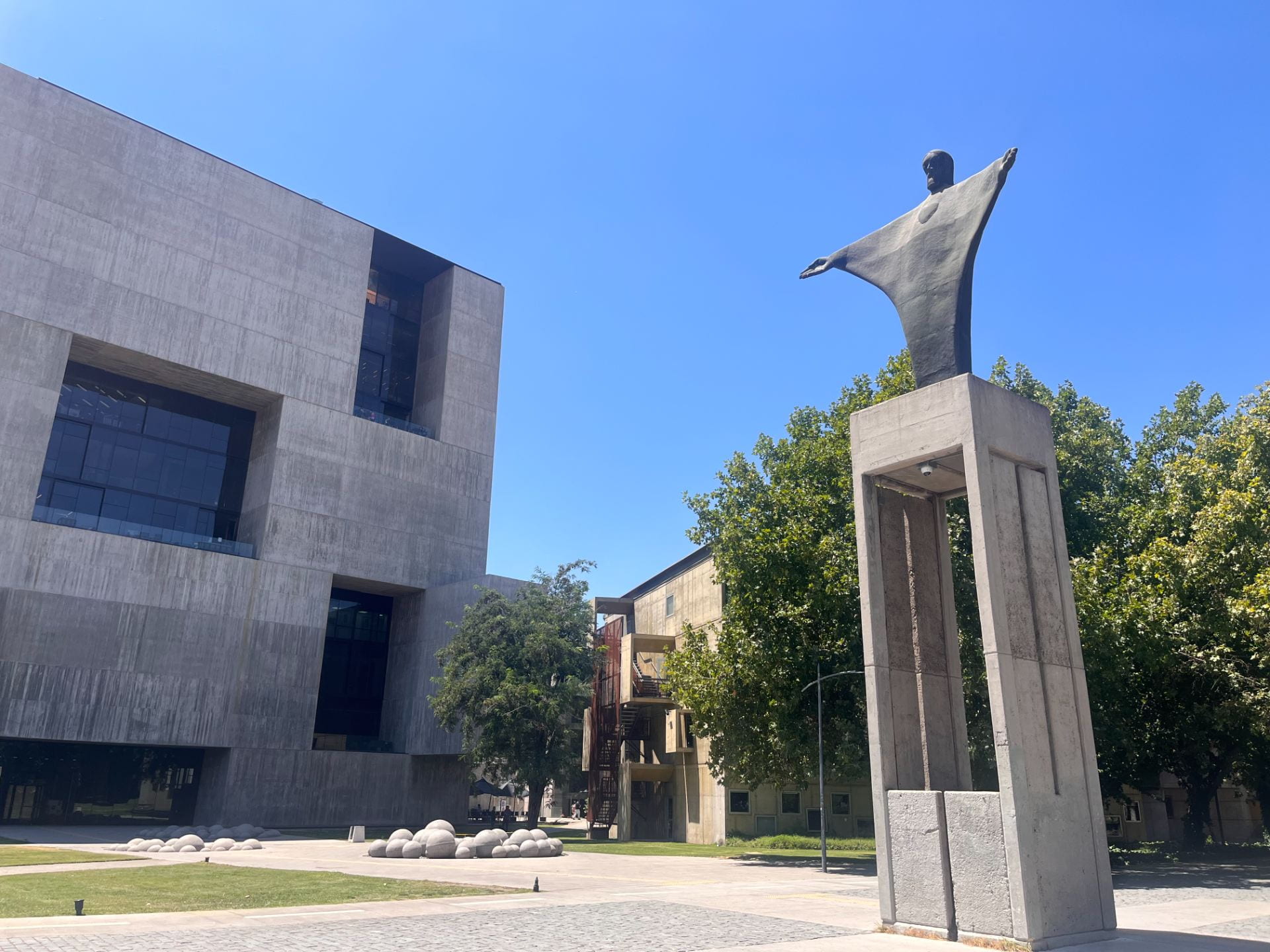
Hola chicas y chicos! Last week was full of emotions as we finished our Intercultural Approaches to Public Health course at Pontificia Universidad Católica de Chile. Below are highlights from our final days.
Highlights
Friday: This morning, we had a seminar about ethnicity and healthcare in Chile from a Mapuche perspective. We had the most incredible morning listening to Manuel, a Mapuche machi, and Maria, a lawentuchefe, share their life stories, culture, challenges, and future aspirations. Manuel shared with us that he can look at your hand or your eyes and instantly see your childhood and what will happen in your future. Manuel talked about the spirit he inherited to become a machi; this is how he understands what he sees. We had the opportunity to give koha and sing waiata to express our appreciation and aroha. In the afternoon, we were invited by the local government of La Pintana to visit the Mapuche Kintu Rayen community at their Ceremonial Centre. I particularly enjoyed visiting the medicinal garden and learning about traditional medicines in the cultural landscape of Mapuche peoples. We heard from incredible people who are fighting to promote culturally-relevant healthcare and discussed their current challenges and future aspirations.
Saturday: On Saturday, we left Santiago for a weekend trip to Valparaíso! We took the bus from Santiago and arrived in the beautiful seaside port of Valparaíso. We spent the day at the beach in Vinã del Mar, enjoying the summer sunshine. I felt so connected to home as I lay on the beach listening to the sound of the waves crashing against the sand, the laughter of children building sandcastles, the seagulls squawking, and friends laughing and playing volleyball on the sand. We spent the evening at our accommodation cooking together and sharing kai. Watching the sunset as we cooked on the BBQ and sang together was a core memory. We ended the night toasting marshmallows by the fire, watching the moon rise on the horizon, and looking up to the stars.
Sunday: In the morning, I visited the Museo de Historia Natural de Valparaíso. I was struck by the resilience of the indigenous people of Rapa Nui as their culture has rebuilt itself and protected its identity throughout colonisation and the human rights abuses endured. Following this, we walked around Valparaíso and shopped at the local market. The hills of Valparaíso are painted with vibrant colours, and the alleys hide beautiful artistic stores and street art. The creativity and flamboyance was refreshing and inspiring. We spontaneously went on a boat ride around the port and met Pancho, a friendly Chilean sea lion who put on a show for us. We ended our weekend eating seafood and watching the waves crash against the soft sand.
Monday: This morning, we had a workshop about intercultural competency from a social psychology lens. I reflected upon this quote presented in class by award-winning Mapuche poet Elicura Chihuailaf: “We Mapuche people know a lot about the Chilean culture, but Chileans know very little about us.” This quote highlights the importance of intercultural education and speaks to the power of context and how a lack of access to education can inform people’s decisions. It highlights the asymmetry of understanding and how this perpetuates stereotypes, prejudice, and misunderstandings that profoundly impact the lives of indigenous peoples.
Following this, I visited Barrio Italia, my favourite neighbourhood with a mixture of Latin and European characteristics. We visited our favourite ice cream shop and explored the maze of side streets.
Tuesday: Today, we visited La Moneda Palace, which is the home of the Chilean government. Palacio de La Moneda is important in Chilean history as it was the scene of the 1973 coup d’état where Pinochet overthrew Allende’s government, ending democracy and beginning a violent 17-year dictatorship. Throughout this visit, I was reminded of the quote displayed in the Museum of Memory and Human Rights- “is it possible to build a democracy without truth and justice?” To visit La Moneda and stand where the palace was bombed 50 years ago was a sombre reminder of the scars of the dictatorship and the resilience of the Chilean people who fought for democracy, truth, and justice.
In the evening, I went back to bachata class! I had the best time meeting new people, learning new moves, and practising my Spanish!
Wednesday: Today was the final day of our programme. Michelle, Sonja, and I gave our final presentation on migration and mental health from an intercultural perspective. We finished the day with a graduation ceremony filled with smiles and laughter as we reminisced on our fantastic time and shed some tears as we said goodbye. I would like to express my gratitude and appreciation to Javiera, Cristián, and the team at the Office of the Vice President for International Affairs for making this opportunity possible and supporting us along the way.
It was a perfect end to our course, and I am so excited for my next blog post to share my final three days in Chile!
